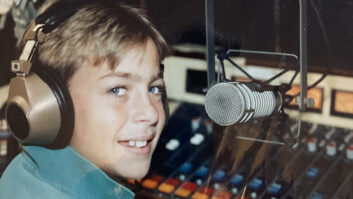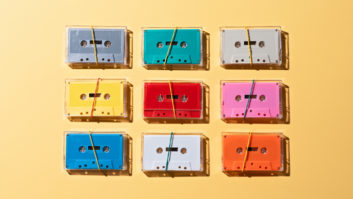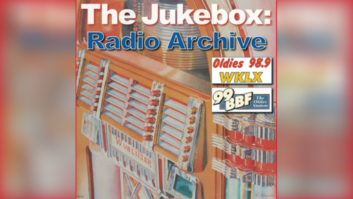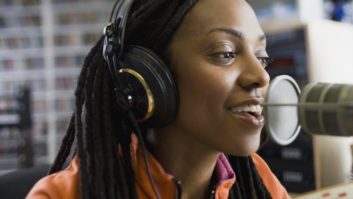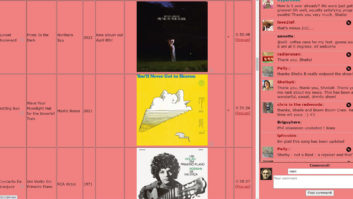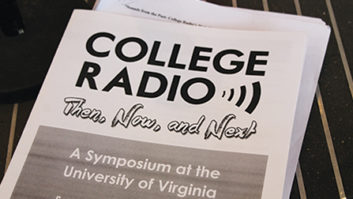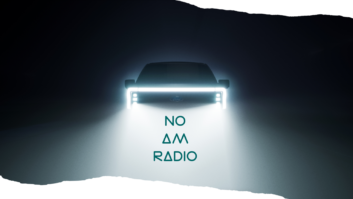(click thumbnail)Ken R.Brian Turner’s Favorite ShowsBob Lassiter, a Florida Talk Host – “He was a real outpost of intellect and free-thinking, doing constant battle on the air with some of the most fundamentalist and right-wing listeners in the state.”
A WFMU 1990s broadcast featuring the rock band Yo La Tengo – “It was on a show here called ‘The Music Faucet,’ and the band was accompanied via telephone by singer-songwriter Daniel Johnston, a unique and off-kilter primitive singer-songwriter who was then living in West Virginia.”
Murray Saul – “This guy is a real old-school motor mouth freak from Cleveland and he was frothing at the mouth, improvising and cursing his boss and demanding everyone ‘get down.’ It was indescribable.”
Paris Hilton – “We ran all of her personal podcasts to promote a movie. It was some of the most insipid yet ‘Warholian’ stuff of the season, as she blabbed about nothing, was heard eating with her friends and bitching about how bored she was.”
Old-Time Soul/Funk DJs – “These include Frankie Crocker, Sonny Hopson and others. We occasionally run some ragged gospel shouters like Reverend Lester Knox and some vintage material from WWOZ(FM), New Orleans.” Radio is ephemeral. The sound waves we receive each day race off into the cosmos where the audio events, songs and human emotions they carry bounce around the Milky Way and presumably are lost forever.
Most of our audio culture has vanished because no one thought it important enough to capture via archival tape or disk. These recordings of what we hear on the radio are known as airchecks, and a small cadre of fans, Web sites and now one radio station, celebrate and preserve them.
WFMU(FM) is an anomaly. It’s a large listener-sponsored entity formerly associated with Upsala College in East Orange, N.J. It was purchased in 1994 when the school closed. In 1998 the station was moved to Jersey City and remains independent and freeform. It was voted the “Best Radio Station” four years in a row by Rolling Stone.
“We had been discussing the idea of digging up some classic WFMU-related archives from DJs of the past,” said Music and Program Director Brian Turner. “And the idea morphed into an overall spotlight on lost radio programs.”
Thus was born “Archives for Aircheck,” a one-hour program heard each Thursday at 6 p.m. on WFMU. A number of people including Evan Funk Davies, Ken Freedman, Rex Doane, Dave the Spazz, Michael Pool, Debbie Daughtry, Scott Williams and Liz Berg contribute show ideas and put in time editing the clips that air. Listeners including Tom Smith and J.C. Kaelin have contributed program concepts and tapes.
Eclectic airchecks
One week you might hear the panic of Sept. 11, 2001 as newscasters scrambled to make sense of the terrorist attacks and resulting chaos. The following week the history of Memphis soul station WDIA(AM) might be featured, with a focus on how that station advanced the cause of black music and human rights.
Other programs have focused on classic top-40 jingles, a live call to a cop killer who was holding a hostage at a 7-11 store, and hillbilly tunes from “The National Barn Dance,” an early country music show originally aired on WLS(AM), Chicago.
And on it goes, with a curious lack of consistency, part of the show’s charm.
Turner was first captivated with airchecks when he heard a most unusual cassette from WFMU, even before he joined the station.
“I once heard this tape given out as a premium. It featured an Eskimo janitor who took over the airwaves of a striking CBC station, smoked weed on mic and sang along with a Rolling Stones song in his native Inuit language,” said Turner.
“That struck me as an incredible thing you don’t normally hear on other programs that highlight radio history. Hence, when we talked about starting up this show the summer of 2002, I thought a particular focus should be less of the dry historical archival stuff and more on the eccentric personalities and out-of-the-norm moments of radio history.
“Once we aired a tape of a U.K. pirate DJ at sea who was broadcasting live when his ship was boarded and set on fire.”
Inspiration in many places
A lot of sounds find their way to WFMU, but Turner is picky about what is right for this show.
“I get a lot of wartime speeches and oldies DJs, but I try to avoid that kind of material,” he said. “The same with ‘bloopers.’ I prefer a show to build an atmosphere of its own and we try not to doctor it up with too much production to preserve the element of how it sounded when it aired.
“It’s a real process of discovery for me.”
“Archive for Aircheck” shows are available at http://wfmu.org/playlists/AC, complete with show descriptions. And if you want to delve more deeply into traditional radio airchecks, try www.reelradio.com , www.californiaaircheck.com or www.theaircheckfactory.com


